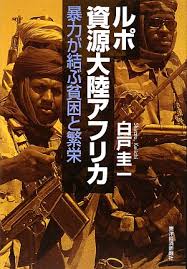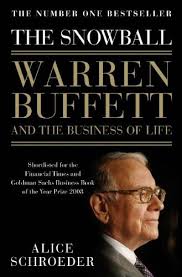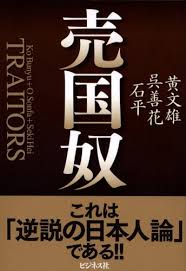How do I know China wrecked the Copenhagen deal? I was in the room
As recriminations fly post-Copenhagen, one writer offers a
fly-on-the-wall account of how talks failed
Mark Lynas
Wednesday December 23 2009
The Guardian
http://www.guardian.co.uk/environment/2009/dec/22/copenhagen-climate-change-mark-lynas
Copenhagen was a disaster. That much is agreed. But the truth about
what actually happened is in danger of being lost amid the spin and
inevitable mutual recriminations. The truth is this: China wrecked the
talks, intentionally humiliated Barack Obama, and insisted on an awful
"deal" so western leaders would walk away carrying the blame. How do I
know this? Because I was in the room and saw it happen.
China's strategy was simple: block the open negotiations for two
weeks, and then ensure that the closed-door deal made it look as if
the west had failed the world's poor once again. And sure enough, the
aid agencies, civil society movements and environmental groups all
took the bait. The failure was "the inevitable result of rich
countries refusing adequately and fairly to shoulder their
overwhelming responsibility", said Christian Aid. "Rich countries have
bullied developing nations," fumed Friends of the Earth International.
All very predictable, but the complete opposite of the truth. Even
George Monbiot, writing in yesterday's Guardian, made the mistake of
singly blaming Obama. But I saw Obama fighting desperately to salvage
a deal, and the Chinese delegate saying "no", over and over again.
Monbiot even approvingly quoted the Sudanese delegate Lumumba
Di-Aping, who denounced the Copenhagen accord as "a suicide pact, an
incineration pact, in order to maintain the economic dominance of a
few countries".
Sudan behaves at the talks as a puppet of China; one of a number of
countries that relieves the Chinese delegation of having to fight its
battles in open sessions. It was a perfect stitch-up. China gutted the
deal behind the scenes, and then left its proxies to savage it in
public.
Here's what actually went on late last Friday night, as heads of state
from two dozen countries met behind closed doors. Obama was at the
table for several hours, sitting between Gordon Brown and the
Ethiopian prime minister, Meles Zenawi. The Danish prime minister
chaired, and on his right sat Ban Ki-moon, secretary-general of the
UN. Probably only about 50 or 60 people, including the heads of state,
were in the room. I was attached to one of the delegations, whose head
of state was also present for most of the time.
What I saw was profoundly shocking. The Chinese premier, Wen Jinbao,
did not deign to attend the meetings personally, instead sending a
second-tier official in the country's foreign ministry to sit opposite
Obama himself. The diplomatic snub was obvious and brutal, as was the
practical implication: several times during the session, the world's
most powerful heads of state were forced to wait around as the Chinese
delegate went off to make telephone calls to his "superiors".
Shifting the blame
To those who would blame Obama and rich countries in general, know
this: it was China's representative who insisted that industrialised
country targets, previously agreed as an 80% cut by 2050, be taken out
of the deal. "Why can't we even mention our own targets?" demanded a
furious Angela Merkel. Australia's prime minister, Kevin Rudd, was
annoyed enough to bang his microphone. Brazil's representative too
pointed out the illogicality of China's position. Why should rich
countries not announce even this unilateral cut? The Chinese delegate
said no, and I watched, aghast, as Merkel threw up her hands in
despair and conceded the point. Now we know why ? because China bet,
correctly, that Obama would get the blame for the Copenhagen accord's
lack of ambition.
China, backed at times by India, then proceeded to take out all the
numbers that mattered. A 2020 peaking year in global emissions,
essential to restrain temperatures to 2C, was removed and replaced by
woolly language suggesting that emissions should peak "as soon as
possible". The long-term target, of global 50% cuts by 2050, was also
excised. No one else, perhaps with the exceptions of India and Saudi
Arabia, wanted this to happen. I am certain that had the Chinese not
been in the room, we would have left Copenhagen with a deal that had
environmentalists popping champagne corks popping in every corner of
the world.
Strong position
So how did China manage to pull off this coup? First, it was in an
extremely strong negotiating position. China didn't need a deal. As
one developing country foreign minister said to me: "The Athenians had
nothing to offer to the Spartans." On the other hand, western leaders
in particular ? but also presidents Lula of Brazil, Zuma of South
Africa, Calder?n of Mexico and many others ? were desperate for a
positive outcome. Obama needed a strong deal perhaps more than anyone.
The US had confirmed the offer of $100bn to developing countries for
adaptation, put serious cuts on the table for the first time (17%
below 2005 levels by 2020), and was obviously prepared to up its
offer.
Above all, Obama needed to be able to demonstrate to the Senate that
he could deliver China in any global climate regulation framework, so
conservative senators could not argue that US carbon cuts would
further advantage Chinese industry. With midterm elections looming,
Obama and his staff also knew that Copenhagen would be probably their
only opportunity to go to climate change talks with a strong mandate.
This further strengthened China's negotiating hand, as did the
complete lack of civil society political pressure on either China or
India. Campaign groups never blame developing countries for failure;
this is an iron rule that is never broken. The Indians, in particular,
have become past masters at co-opting the language of equity ("equal
rights to the atmosphere") in the service of planetary suicide ? and
leftish campaigners and commentators are hoist with their own petard.
With the deal gutted, the heads of state session concluded with a
final battle as the Chinese delegate insisted on removing the 1.5C
target so beloved of the small island states and low-lying nations who
have most to lose from rising seas. President Nasheed of the Maldives,
supported by Brown, fought valiantly to save this crucial number. "How
can you ask my country to go extinct?" demanded Nasheed. The Chinese
delegate feigned great offence ? and the number stayed, but surrounded
by language which makes it all but meaningless. The deed was done.
China's game
All this raises the question: what is China's game? Why did China, in
the words of a UK-based analyst who also spent hours in heads of state
meetings, "not only reject targets for itself, but also refuse to
allow any other country to take on binding targets?" The analyst, who
has attended climate conferences for more than 15 years, concludes
that China wants to weaken the climate regulation regime now "in order
to avoid the risk that it might be called on to be more ambitious in a
few years' time".
This does not mean China is not serious about global warming. It is
strong in both the wind and solar industries. But China's growth, and
growing global political and economic dominance, is based largely on
cheap coal. China knows it is becoming an uncontested superpower;
indeed its newfound muscular confidence was on striking display in
Copenhagen. Its coal-based economy doubles every decade, and its power
increases commensurately. Its leadership will not alter this magic
formula unless they absolutely have to.
Copenhagen was much worse than just another bad deal, because it
illustrated a profound shift in global geopolitics. This is fast
becoming China's century, yet its leadership has displayed that
multilateral environmental governance is not only not a priority, but
is viewed as a hindrance to the new superpower's freedom of action. I
left Copenhagen more despondent than I have felt in a long time. After
all the hope and all the hype, the mobilisation of thousands, a wave
of optimism crashed against the rock of global power politics, fell
back, and drained away.

















































